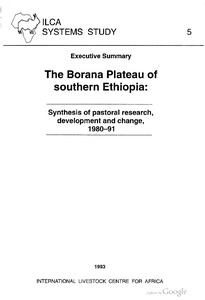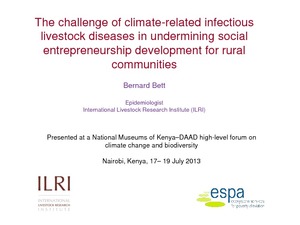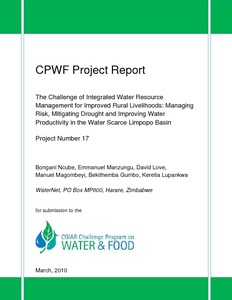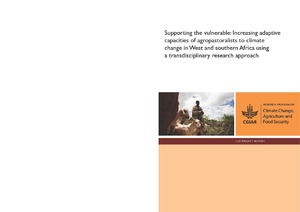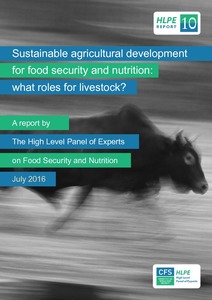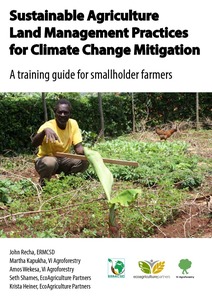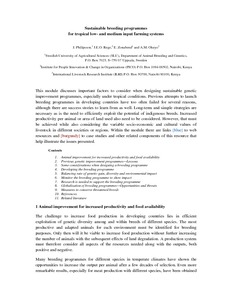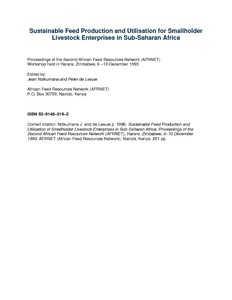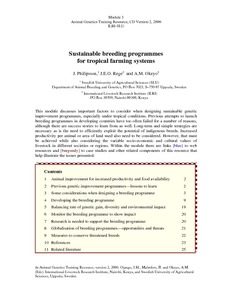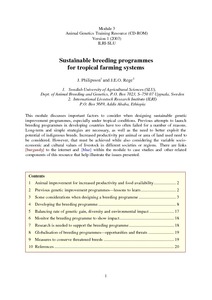The Borana plateau of southern Ethiopia: synthesis of pastoral research, development and change, 1980-91. Executive summary
The Borana plateau of southern Ethiopia: synthesis of pastoral research, development and change, 1980-91 summarises results from work conducted by 40 people in the southern Ethiopian rangelands between 1980 and 1991. The first chapter reviews rangelands and rangeland development in Ethiopia. The second chapter is an introduction to the Borana plateau: natural resources and pastoral society. The next three chapters deals with vegetation dynamics and resoruce use, Borana household economy, and livestock husbandry and production.

